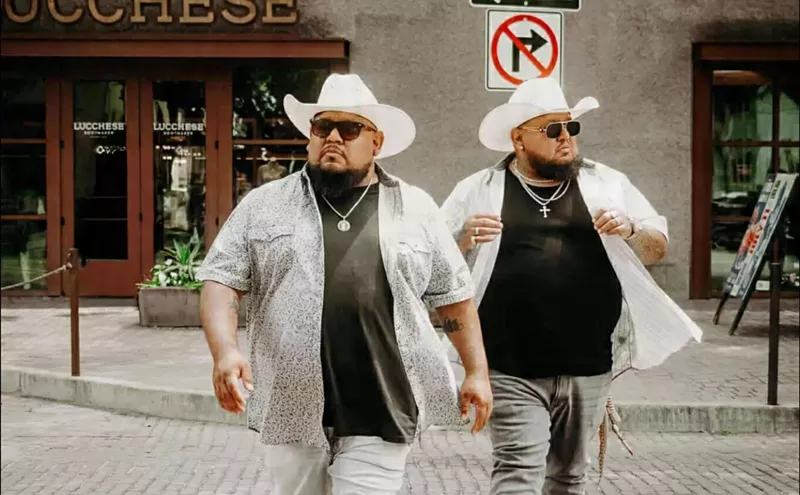Making music for video games wasn't something Stephen Rippy set out to do. It is not, for instance, why he attended the University of Texas in the early 1990s—far from it, actually. He'd moved from Spring, 20 miles from downtown Houston, to Austin in order to study visual art; at UT, he took only a few music classes, which consisted of little more than rudimentary, connect-the-dots history lessons.
He'd had a band at 12, but sure, who didn't? And his knowledge of movie scores stretched only as far as John Williams (whose Star Wars score serves as, all these years later, two generations' Beethoven 5th Symphony) and Danny Elfman (the Oingo Boingo frontman who became Tim Burton's whimsical, grim muse). "That's stuff that just gets in your head," says the 33-year-old Plano resident, heretofore one of the area's most prolific (and profitable) musicians—and among its least known.
Quietly, in relative anonymity outside of The Joystick Nation, Stephen Rippy has joined those esteemed ranks—as a composer of soundtracks, a seller of scores.
On February 17, his soundtrack to the frantically anticipated Xbox release Halo Wars (a spin-off of the beloved Halo series) went on sale, a few weeks in advance of the game's arrival.
Those who keep tabs on such things sweated Rippy's score. He was, after all, replacing a legend—Marty O'Donnell, the former commercial-jingle ringer whose Halo score is more or less the Star Wars title theme for the sofa set and has been remixed for the dance floor and reworked by a high school talent-show band displaying its semi-pro prowess on YouTube.
Sure enough, just as there's a market for Swedish klezmer-punk or smooth jazz or comedy rock or Josh Groban, there's a market for video-game scores, bootlegs of which sell like, um, action figures at comic and sci-fi conventions. Just as blues fans covet the scratchy rustic blues of Robert Johnson and Blind Lemon Jefferson, purists pore over the sacred, monophonic blips and beeps of Pac Man and early Atari; and just as soundtrack fetishists scour bargain bins for every obscure title by Ennio Morricone or Elmer Bernstein, console connoisseurs seek out every last echo made by Koji Kondo (who penned the music for both the Super Mario Bros. and Zelda series) and Nobuo Uematsa (who scored Final Fantasy).
It's serious business too: In March 2008, Rippy traveled to the Czech Republic to record at CNSO Studios with an orchestra and a choir—a sprawling session that lasted several days, and one Rippy documented at great length for the Web site Music 4 Games. Says Rippy now of the experience, "I think the choir voices there just sound different. Not sure why that is. It has a...a darker sound."
And so far, so good. "Just as Halo Wars intends to take the franchise in a new direction with its real-time strategy game play, Halo Wars composer Stephen Rippy intends to do the same with the title's music," reads the review on Original Sound Version, whose devotion to "nerdy music" includes video-game scores. "While the previously mentioned orchestral music is not entirely absent (the FILMharmonic Orchestra and Choir Prague are featured), you're going to find the majority of the score is centered on an electronic ambient style, and I'll tell you right now that it sounds absolutely amazing."
Other comments scattered throughout the Web have been equally kind; Rippy is not the first victim of the Halo Wars.
Instead, Rippy says he's merely relieved it's over and out there, because there were days during the end of 2008 and in the beginning of '09 when he wondered if and how he could finish the final touches. Not because the task was impossible, though; he's a cagey vet of several video-game scores now, among them the multimillion-selling real-time strategy PC titles Age of Empire and Age of Mythology for Microsoft and its Dallas-based design studio, Ensemble, which Microsoft acquired in May 2001. In September 2008, Microsoft suddenly and, to many industry observers, inexplicably shuttered Ensemble with one of the most corporate-lingo-littered adioses in the history of screw-yous: "Our priority is to continue to nurture the creative freedom that allows us to successfully drive our business strategy forward." Rippy, whose two brothers also worked at Ensemble, was still posting notes when the closure came.
"I was stunned," he says. "It was hard to finish Halo Wars."
His colleagues at Ensemble had the same problem. How, then, did they manage?
"Well, it's important to everyone that the last thing you do has to be important," he says. "I mean, this is going to be going out with your name on it. But some days it was hard, and some days you'd wake up and you'd have to say to yourself, 'Get to work.'"
The studio finally shuttered for good in January, just as Ensemble—which had grown from 20 friends in 1987 when Rippy joined, to more than 200 employees scrambling to deliver Halo Wars—was delivering the game. Ensemble's supporters—and they are legion—demanded in Web sites' comments sections that the studio load the game with bugs for which Microsoft would have to answer. "Bewildering" and a "sad day for PC gaming" was how writers for IGN.com, among the leading gamer sites, described its closing: "Microsoft has said that it will form a new studio with members of Ensemble, but there are sure to be layoffs, and the proud name of Ensemble Studios will disappear from the map of the industry."
The death of Ensemble, however, has spawned two local gaming companies. The first, Robot Entertainment, was announced earlier last week. Its CEO is Ensemble founder Tony Goodman, who says the Plano-based design studio "is ideally positioned to play a transformative role in the [video-gaming] industry's futures."
A few days later, on February 20, came the formal announcement of the second Ensemble spin-off: Bonfire Studios, which will be run by Stephen Rippy's brother David. According to Rippy's announcement, his will be a 35-person shop consisting of Halo Wars vets (including Stephen). And, already, there's a game being developed out of its Dallas offices. Says its just-launched Web site, Bonfire "already has a great in-depth story, combat and game play!" The small number of employees is intentional: "We're trying to get some of that original culture back," Stephen says. "It's hard to do it with 30 people."
So far, though, Rippy's been managing just fine. But the funny thing is, he's never thought of doing soundtracks for film or TV—never been asked, never thought to ask. He'd like to give it a try, sure. Maybe some day.
For the time being, however, there's a Bonfire to start, and Rippy is already in the home studio, writing.
Either that, or he's putting the touch on his other musical effort: his would-be career as a singer-songwriter. Rippy's got that record to finish.
And, oh yeah, it's his ninth. Those, he gives to friends.












